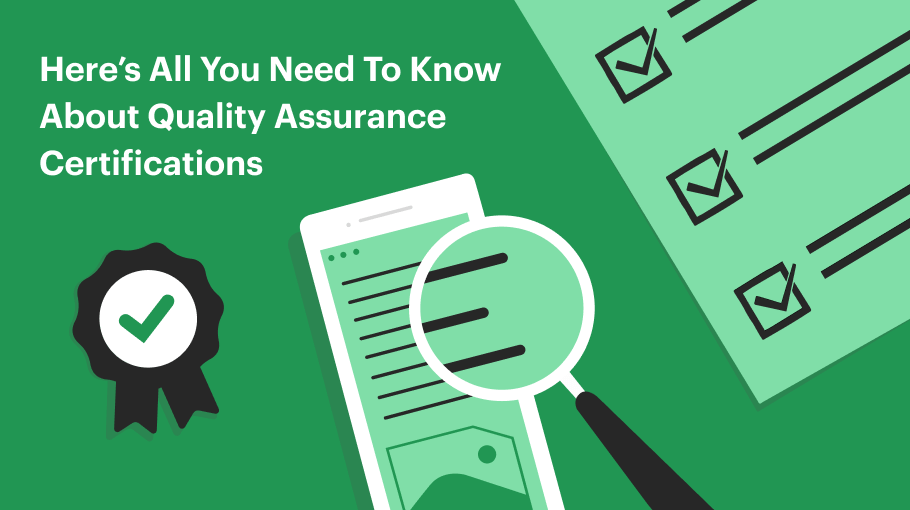
Blog 17 - Top 5 Quality Assurance Certifications

Why Are Quality Assurance Certifications Important?
Attaining certification in QA software testing is imperative not only for personal knowledge but also for maintaining consistent quality in the industry. In software development, the QA team is a significant part of the process making sure the product is usable and maintains a standard of quality. Having a certification adds to your resume or CV while expanding your knowledge base and the borders of your personal understanding.
5 Top Quality Assurance Certifications
Quality Assurance certifications vary. Every country has different standards for various products. It is important to find the certification that standardizes your industry and meets the requirements of your country as well. Make sure you choose the right course for your level of experience. Whether you go with ASQ certification or ISTQB, having it on your resume is always beneficial. Classroom or online quality assurance certification is available so there are a lot of options that fit both your level of experience and schedule.
1. Certified Test Engineer (CSTE)
This software quality assurance certification is to set and maintain the standards required for an initial software quality assurance qualification showing competence in the basics of QC in the IT profession. A CSTE certification brings an association with a recognized professional association, good career advancement, and demonstrates the ability to advise management. The certification is for those who are newer to the industry and looking to boost their resume and experience.
2. Certified Software Quality Analyst (CSQA)
This certificate background is more advanced than the CSTE. It covers both quality control and quality assurance. The course is taken once someone has attained their CSTE and moved farther along in their QA roles.
3. Certified Associate in Software Testing (CAST)
This certification shows a foundational level of understanding of QA testing and technical features in software for IT and demonstrates the ability to use the techniques learned in the course itself. It is good QA training for the beginner.
4. CMSQ (Certified Manager of Software Quality)
Attaining this certification shows that the person is professionally competent with the principles, skills, and abilities of software QA and has good management skills to lead a QA team.
Candidates need to have:
- CSQA Certification (recommended)
- Currently working in the field of certification
- Be ready to take a manager’s level exam
5. ISTQB (International Software Testing Qualifications Board)
This board is a software testing qualification body that certifies people as an ISTQB tester internationally and is internationally accepted as the standard for software testing qualifications. It has a universal syllabus, National boards, and worldwide acceptance. You can work on foundational, advanced, or expert levels.
Foundational has no prerequisites other than a suggested 6 months of practical experience. Advanced requires the Foundational level certification as well as practical experience and Expert requires Advanced certification and further expert-level modules. They also suggest seven years of practical experience.
Is it worth getting ISTQB certification?
Yes. This certification is one of the most widely accepted across the globe and is great to have on a resume. Well worth the investment.
Not only does staff ISTQB certification (Foundational to Expert) assure buyers that those products will meet all industry standards, but it can improve your chances of getting more access to QA jobs throughout the industry. In general, most managers want at least 75% of their staff certified, at least at the Foundational ISTQB level.